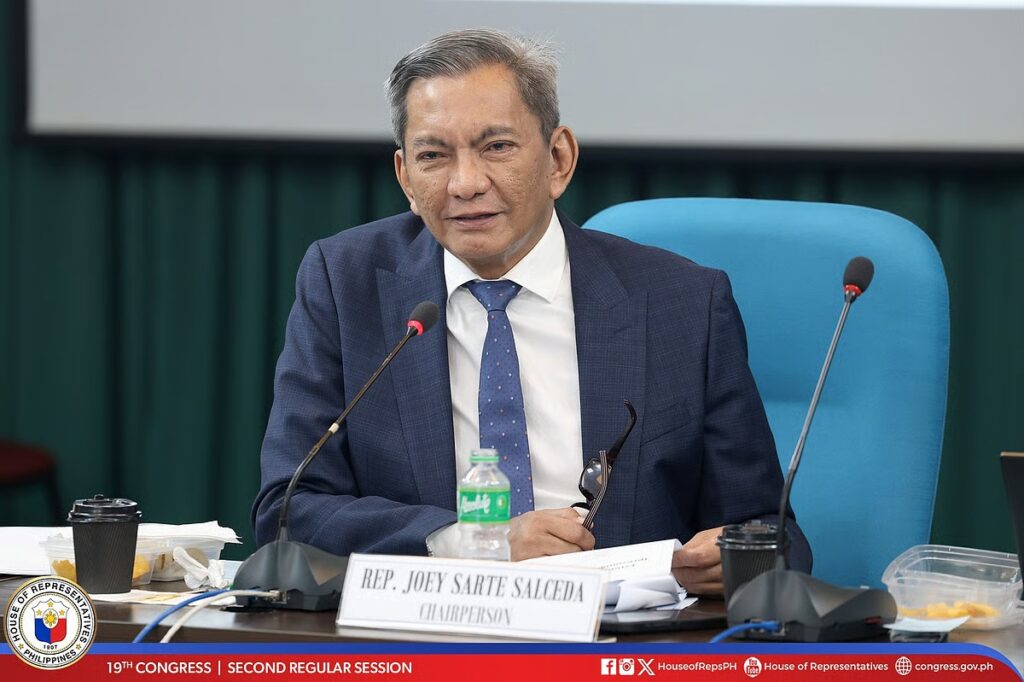
Former Albay 2nd District Rep. Joey Sarte Salceda proudly told international delegates to the recent High Level Roundtable Talks of Climate Leaders held in Bangkok that “the Philippines has done more than its commitments to rapidly shift to renewable energy through its own initiatives.
Salceda, who was former Asian Co-chairman of the United Nations Green Climate Fund (GCF), was invited to the Bangkok Climate Leaders Roundtable Talks which coincided with the formal launch of the Climate Action Week last October 1, where he also pointed out that developed countries “share the burden to concessionally finance the shift of developing countries away from coal and fossil fuels.”
The former Albay legislator and provincial governor now chairs the UN Institute for Risk and Strategic Studies, Inc., a policy-oriented think-tank body based in Manila. He was invited to the Bangkok event to lead the talks among the climate leaders.
The talks, dubbed as “Leaders in the Asia-Pacific for Building Ambitious Climate Momentum Toward COP30” discussed, among others, widescale participation in the global transition to a low-carbon, climate-resilient future; Asia-Pacific’s role in global climate action; and how Legislatures can help accelerate ambitious Nationally Determined Contributions (NDCs) under the Paris Agreement.
The event’s organizers believe that “with ASEAN energy demand projected to rise by 60% by 2040, the region must accelerate decarbonization while advancing poverty reduction and climate resilience.” Salceda said countries like the Philippines suffer more from the impacts of emissions that industrialized countries created and continue to create.
“Those who benefit from what harms us must be the ones who must pay the most for this transition,” he added. During the discussions, the topic “Asia-Pacific’s role in the global climate action’ was deemed pivotal: As the world’s most populous and economically dynamic region, it faces both acute climate risks and vast opportunities to lead the global transition to a low-carbon, and climate-resilient future.
Salceda stressed that the right of developing countries to development, the need for expanded climate financing, and the recognition of loss and damage are central to climate justice.
Drawing from his experiences in Albay and the GCF, he espoused that “political will, institutional strength, and predictable climate finance must converge if Asia-Pacific is to lead the global transition toward a low-carbon and climate-resilient future.”
As former governor of Albay, Salceda made history as the first Asian to co-chair the GCF, where he helped lead its Initial Resource Mobilization in 2014, securing USD10.3 billion from 45 countries. This effort established the Fund’s largest dedicated climate fund resource.
Salceda continues to serve as International Adviser of Incheon City, South Korea where the GCF has its headquarters. As a former legislator, he was the principal author of Republic Act No. 12019 enacted in August 2024, which granted juridical personality and legal capacity to the Board of the Fund for Responding to Loss and Damage Due to Climate Change.
As Albay governor from 2007 to 2016, he established and strengthened the Albay Public Safety and Emergency Management Office and institutionalized the Zero Casualty doctrine, a strategy that made his province a model in disaster preparedness internationally, under the United Nations International Strategy for Disaster Reduction (UNISDR).
Salceda was subsequently named UNISDR Senior Global Champion on Disaster Risk Reduction, the only Filipino to hold the title to date.
The Bangkok Climate Action Week is the first major regional platform in Southeast Asia that brought together lawmakers, experts, and communities to push concrete climate change solutions ahead of COP30.
COP30 is the 30th United Nations Climate Change Conference of the Parties, which will be held in Belém, Brazil, in November 2025, where countries are expected to present stronger climate commitments under the Paris Agreement and advance key issues like climate finance, adaptation, and loss and damages.